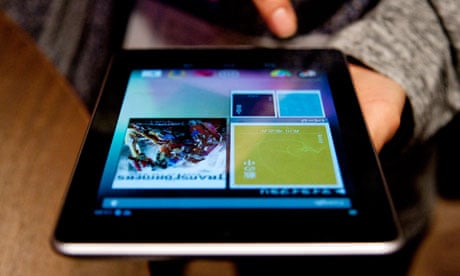At the beginning of 2012 I made a decision: to opt for more liberty in my use of technology. I'd been watching as big companies and governments push for more and more control over what we could do with the computing and communications systems that have brought such value to our lives. I'd grown increasingly worried about the degree to which decentralized technology – where the greatest value was created, without anyone's permission, at the edges of the networks – was being re-centralized in disturbing ways. Meanwhile, tech users seemed to take vast corporate and government surveillance for granted.
The trends stemmed from a combination of factors: the natural tendency of governments and businesses toward accretion of power; fundamental economic realities that, especially in the tech sphere, favor monopolies and oligopolies; and the public's understandable, if worrisome, preference for convenience and what is too often the illusion of security.
I concluded that I needed to look much more thoroughly into what I was doing myself, not just what others were doing to (and for) me. And I needed to address, as an individual, the growing imbalances in the tech ecosystem, to attempt to restore some liberty for myself.
My report card: it's been a year of progress. But I have a lot further to go. Here's some of what I've done so far this year:
My main computer now runs Linux. This was a big shift, as I'd been a full-time, devoted Mac user for more than a decade. But I could no longer abide Apple's absolute control-freakery, not just in its iOS (mobile) ecosystem, but also a growing sense that the MacOS world was being restricted as well. The Mac is still far more open than the iPhone or iPad, but the trend is ominous – and the latest Mac operating systems, which I've installed and tested, are in my view distinctly inferior to the last great Mac system, Snow Leopard.
So last spring, I installed Ubuntu Linux on a recent model of Lenovo's ThinkPad laptop, and began using it for my main system. For a month or so, I was at sea – making keystroke errors and missing a few Mac applications on which I'd come to rely. But I found Linux software that worked at least well enough, and sometimes better than Mac or Windows counterparts. And one day I realized that my fingers and brain had fully adjusted to the new system; now I'm a bit confused when I use a Mac. In the fall I bought a ThinkPad T430s, a new model that struck me as the best combination of size, weight, upgradability and price, and installed the Ubuntu 12.10, the most recent version. I'm not looking back in any way.
My phone and tablet today run Google's Android operating system. One is a Google Nexus 7 tablet (made by Asus) and the other a Galaxy Nexus (made by Samsung). Because they are both Google-branded, they are equipped with recent versions of Android, and Google promises to update them consistently with improvements and security fixes, something you absolutely cannot count on from other vendors and the mobile carriers that sell them.
But I don't rely solely on Google's promises, especially since the company's Motorola subsidiary reneged this fall on its commitment to keep a phone I'd purchased up to date. Leveraging the great work of the Android hacker community, I've made sure that both devices could run operating systems based on Android but fully updated by these expert users who take the open-source Android and improve it.
I've beefed up security of my data in any number of ways. On all of my computers, for example, I've installed and routinely use virtual private network (VPN) software that creates an encrypted tunnel between me an a server that handles all internet traffic. Yes, that server could become a target for surveillance, but what I've done provides better protection at Wi-Fi hotspots, which I often use in my frequent travel.
Another measure I've taken is to install browser "extensions" that require, whenever possible, the use of encryption between me and the computer at the other end. I keep my software up-to-date – probably the single most important thing anyone can do to prevent security problems on our own machines. And my laptop has full-disk encryption, which means that no one can see what's on it without knowing a (very complicated) password.
The arena where I've not done as much as I could to avoid over-centralized systems is perhaps most difficult, because it's rife with trade-offs. Take social networks. I've pretty much dropped Facebook – a company that is relentless in its push to turn its service into an alternative, and preferred, Internet around the world, as well as doing its best to shred privacy in the name of sharing. But I still find Twitter and Google+ enormously useful, and have not found workable alternatives. Moreover, so-called "cloud" computing is becoming almost unavoidable – in good and bad ways, because it's so helpful even though it introduces new risks.
In some ways, let's face it, I'm a hypocrite. I still use some of the services I consider potentially dangerous, and support – in several cases as a shareholder – a few companies that are pulling control-freakish moves of their own, such as Amazon. The trade offs are only growing, and they're more difficult than ever. (I'm working on a new book about all of this, and will be discussing these topics a lot more in this space.)
But the bottom line for 2012 does feel like progress. I hope to make more in 2013. More than that, I hope you'll give much more thought to these issues yourself. The trends should worry us all; but we can all take steps to preserve, or regain, at least some of our liberties.
I wish you a happy, productive, safe – and free – new year.
